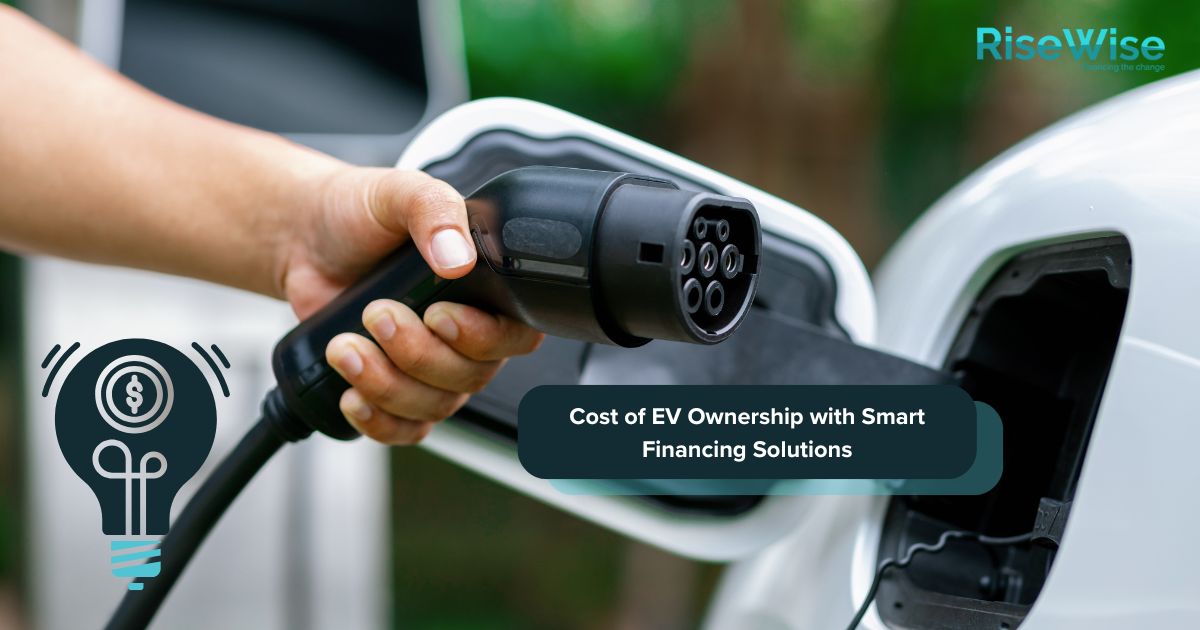Breaking Down the Cost of EV Ownership with Smart Financing Solutions

As electric vehicles (EVs) become more mainstream, many potential buyers wonder whether these eco-friendly alternatives are a good financial investment. The answer is: absolutely! However, understanding the total cost of EV ownership and using smart financing solutions can make the process easier, more affordable, and rewarding. In this article, we’ll dive into the different costs associated with owning an electric vehicle and how innovative EV finance options can help you manage those expenses.
The True Cost of EV Ownership: What You Should Know
Initial Purchase Price
Electric vehicles tend to have higher upfront costs compared to conventional gas-powered vehicles. This is mainly due to the advanced technology involved, particularly the batteries. However, government subsidies, tax incentives, and discounts on EVs can significantly reduce the initial burden.
Charging Infrastructure and Energy Costs
Many EV owners install home charging stations, which come with an upfront setup fee. Additionally, public charging stations may charge a small fee per session. Even with these costs, EVs still tend to be cheaper to refuel compared to filling up with gasoline. On average, EV owners save hundreds of dollars annually on fuel costs.
Battery Maintenance and Replacement Costs
EVs have fewer moving parts, meaning less maintenance. However, over time, batteries may degrade. Fortunately, most manufacturers offer warranties on EV batteries lasting between 8-10 years, so you won’t need to worry about major replacements for a while.
Insurance Costs
Insurance premiums for EVs may be slightly higher than for gas-powered vehicles due to their higher value. That said, many insurers are now offering special plans and discounts tailored for EV owners.
Resale Value and Depreciation
EVs tend to depreciate faster than gasoline vehicles, although newer models with better battery technology are holding value better. It’s essential to account for the resale value when calculating the total cost of ownership.
Smart Financing Solutions: Making EV Ownership Affordable
Now that you have a clearer picture of the costs involved, let’s explore smart financing solutions to ease the financial burden of owning an electric vehicle.
Government Incentives and Rebates
Governments worldwide are encouraging the adoption of electric vehicles by offering tax credits, rebates, and grants. Depending on where you live, these incentives can shave thousands off the cost of your EV.
Low-Interest EV Loans
Many banks and financial institutions now offer EV finance plans with lower interest rates than standard auto loans. These loans are often structured to encourage buyers to switch to eco-friendly transportation.
Flexible Payment Plans
Some dealerships provide flexible payment options, such as leasing or rent-to-own plans. Leasing allows you to drive an EV without worrying about resale value or battery degradation. This way, you pay only for the vehicle’s depreciation over a few years and have the option to upgrade to newer models later.
Bundled Insurance and Financing Packages
A growing number of financial institutions are offering bundled EV insurance with financing plans. Bundling can reduce your monthly premium, giving you peace of mind at a more affordable price.
Subscription Services for Battery Upgrades
One innovative financing solution is battery subscription services. Instead of buying an EV battery outright, you subscribe to a plan that covers battery replacement and maintenance. This can significantly reduce your long-term ownership costs.
Practical Tips for Reducing Electric Vehicle Costs
- Choose the Right EV for Your Needs: Opt for a vehicle that matches your daily driving needs. A smaller, more affordable EV may be perfect if you commute within the city, while a larger vehicle with extended range makes sense for longer trips.
- Charge During Off-Peak Hours: Some energy providers offer discounted electricity rates during off-peak hours. Charging your vehicle at night or during these hours can save you money on energy bills.
- Use Public Charging Stations Strategically: Take advantage of free public chargers when available, such as those at shopping malls or workplaces, to minimize home charging expenses.
- Regular Maintenance and Tire Care: While EVs require less maintenance, taking care of essentials like tire pressure, software updates, and brake maintenance ensures your vehicle runs efficiently and minimizes long-term costs.
The Long-Term Benefits of EV Ownership
Owning an EV comes with more than just financial savings. Here are some additional perks:
- Lower Carbon Footprint: EVs help reduce air pollution and greenhouse gas emissions.
- Quiet Driving Experience: EVs are known for their smooth and silent operation, making driving more enjoyable.
- Access to Special Privileges: In some areas, EVs get special privileges like access to carpool lanes and free parking spots.
Conclusion
Although the cost of EV ownership might seem daunting initially, smart financing solutions can make the process manageable and even enjoyable. Whether through government incentives, low-interest loans, or innovative payment plans, financing options for EVs are evolving rapidly.
By understanding the various costs associated with electric vehicle ownership and choosing the right EV finance options, you can enjoy the many benefits of driving an eco-friendly vehicle without breaking the bank. Make the smart move today and drive into the future with confidence—because the road ahead is green and filled with possibilities!

